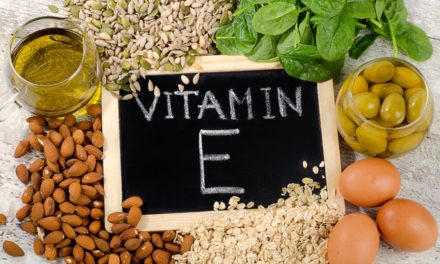Probiotics is the term used for supplements that contain normal bowel flora. The large intestine contains several pounds of bacteria; it is normal and healthy for the proper bacteria to be there. The proper bacteria can help remove toxins, nourish the intestinal lining, keep harmful bacteria in check and even produce vitamins. Research appearing in the journal Allergy (2006; 61(4): 431-7), looked at the effect supplementation with probiotics and prebiotics (supplements which help nourish normal bowel flora) and its effect on children with atopic dermatitis. The subjects in the double-blind, placebo-controlled study were 39 children over the age of two, suffering from atopic dermatitis. The children either received a combination of probiotics and prebiotics or a placebo for three months. The severity of the dermatitis was evaluated using Scoring Atopic Dermatitis (SCORAD) score, with all participants having a minimum score of 15 using that scale. At the end of the three months, the group receiving the supplements reduced their mean SCORAD score to 20.7 from 39.1. This is significant improvement and shows that treating children with probiotics and prebiotics may help improve atopic dermatitis.
Taking probiotics may benefit the immune system. A randomized, double-blind, placebo-controlled study looked at the effect a specific probiotic supplement had on school children and the common infectious diseases experienced by children during the winter. The subjects of the study were 135 children between the ages of three and seven. Over a period of three months during the winter, 73 of the children received a placebo and 63 of them received a specific probiotic supplement (a mixture containing Lactobacillus helveticus R0052, Bifidobacterium infantis R0033, Bifidobacterium bifidum R0071 and fructooligosaccharide). Of the 73 children in the control group. Of the group receiving the probiotic supplement, 51.6% contracted at least one illness during the course of the study. In the placebo group, 67.1% of the students became ill. Overall, the control group missed more school, with 42.5% of them missing at least one day. Only 25.8% of the supplemented group missed a day or more of school. The study suggests that supplementing with probiotics reduces the risk of common childhood infections. Research appearing in the journal, Vaccine (Volume 24, Issues 44-46, 10 November 2006, Pages 6670-6674) looked at probiotic supplementation and its effect on upper respiratory tract infections (colds and the flu). The double-blind, placebo-controlled study took place during two winter/spring periods. The subjects were 479 healthy adults who were supplemented with a vitamin/mineral supplement containing probiotics (lactobacilli and bifidobacteria) or a placebo that contained only the vitamin/mineral supplement. Taking the probiotic did not reduce the number of upper respiratory infections, but they did significantly shorten the duration of the illness (by nearly two days, compared to the placebo group). Also, the symptoms were less severe in the probiotic group. Taking the probiotics also increased the number of immune cells (cytotoxic T plus T suppressor cell counts and in T helper cell counts).
Researchers in China [Zhonghua Wei Chang Wai Ke Za Zhi,( 2010 Jan; 13(1): 40-3)] looked at the effect supplementing colorectal cancer patients had on surgical outcomes. Sixty patients with colorectal cancer were randomly selected to receive either a probiotic containing bifidobacterium or placebo. The group receiving the probiotic had fewer post-operative infections. They also had an overall improvement in immunity (the levels of immunoglobulins [Ig], which are proteins involved with the immune system, improved). IgG, IgM, IgA and IL-6 levels were lower in the blood tests of the supplemented group–indicating less general activity in the immune system. The level of IgA in the stool was actually higher–indicating that the immune system was more active where the surgery took place. Additionally, c-reactive protein levels were lower in the supplemented group, indicating less inflammation. Probiotic supplementation may be benefit patients undergoing surgery for colorectal cancer.






